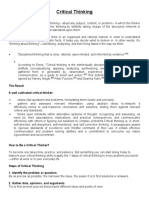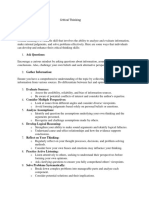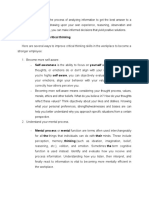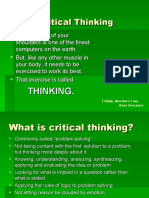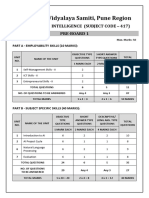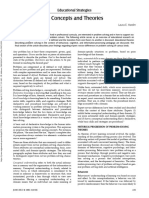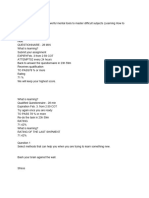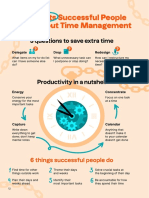0% found this document useful (0 votes)
62 views9 pagesCritical Thinking Module 3
Uploaded by
Vibha HegdeCopyright
© © All Rights Reserved
We take content rights seriously. If you suspect this is your content, claim it here.
Available Formats
Download as PPTX, PDF, TXT or read online on Scribd
0% found this document useful (0 votes)
62 views9 pagesCritical Thinking Module 3
Uploaded by
Vibha HegdeCopyright
© © All Rights Reserved
We take content rights seriously. If you suspect this is your content, claim it here.
Available Formats
Download as PPTX, PDF, TXT or read online on Scribd
/ 9










